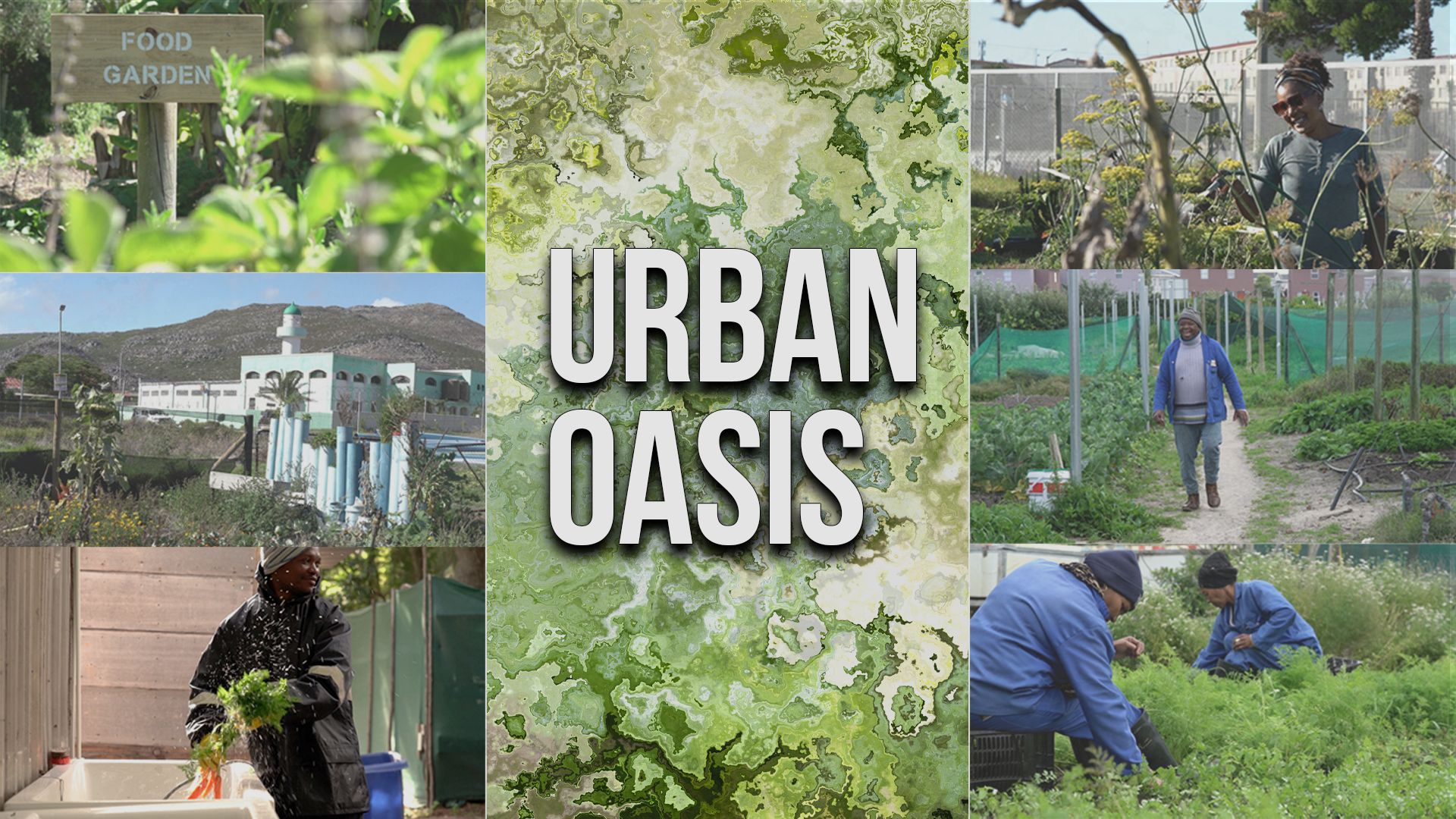
Urban Oasis, a six-part video series, profiles community-driven food gardens in densely populated and under-resourced areas across Cape Town.
Community food gardens in the urban environment have come into keen focus, especially in the South African context where the Covid-19 pandemic exacerbated pre-existing food insecurity, poverty and unemployment issues.
And while this series touches on these severe problems, it goes beyond to prominently feature the resilience, sustainability and environmental impact of these gardens.
Ocean View's 'kos gangsters' fighting hunger with a flourishing food garden

"That [the pandemic] is what gave us the boost," says Nicky Jacobs, farm manager at Ocean View Organics, which was founded by women dubbed the "Kos Gangsters".
"People were too scared to come out [or] people couldn't come out. We had a veggie box, we delivered it to the people's doorsteps and they could eat."
Urban food gardens also provide employment and learning opportunities to the community. Based at the Rocklands Abundance Centre in Mitchells Plain, SEED focuses on preparing the youth for work opportunities in South Africa's green economy by providing hands-on permaculture training centred on a working urban farm.
Mitchells Plain hub preparing SA's youth for work in the local green economy

"We're growing resilience skills among the youth while connecting them to livelihood opportunities in the local green economy," explains SEED's founding director Leigh Brown, citing the 60% of participants who have found and maintained full-time employment.
The conservation of water, a vital resource in Cape Town; avoiding harmful pesticides; and creating minimal waste through innovative reuse principles and other sustainable environmental practices are at the heart of these community gardens.
Umoya weKhaya Peace Garden Cooperative in Khayelitsha, which is run by a group of retired women, transformed a barren piece of sandy Cape Flats land into a burgeoning food garden. This was achieved through a consistent and sustainable organic composting strategy without chemicals or pesticides.
The Khayelitsha food garden run by retired women who turned sand into rich soil

Similarly, Love in a Bowl, a food garden in Hout Bay that feeds hundreds of children across 26 early childhood development centres in Imizamo Yethu and Hangberg, has launched a community composting initiative that reduces waste. The programme diverts kitchen waste from already overburdened landfills and into the soil responsible for growing vegetables that feed the community.
"The composting project helps a lot because we are an organic farm and we don't use pesticides."
Phandle adds that preserving the integrity of surrounding water sources was a priority.
The Hout Bay food garden keeping vulnerable children better nourished

The importance of preserving water and soil is also being taught to the youth through these community garden initiatives. In Hanover Park, young people who are most at risk of becoming involved in gangs and crime find solace in a garden on the grounds of Mount View High School.
In addition to changing behaviours, the GrowBox urban garden teaches children the importance of sustainable farming in a city environment.
"The [pupils] come in for tours with the class and the teacher incorporates what we do within the lesson. So, it's either food gardening, sustainable growing or life on land."
Manuel considers lessons to protect, restore and promote sustainable use of terrestrial ecosystems as crucial learning elements.
The Hanover Park food garden giving hope and healing hunger

The role these food gardens play in developing healthier communities, in both a physical and socioeconomic sense, is exemplified by the Baphumelele Fountain of Hope farm in Philippi. This project, born out of a children's home that looks after abandoned, abused, neglected or orphaned youth, uses the garden to teach valuable life and business skills.
"We are not only teaching these young people the skills of farming but, because our programme is independent living, we are saying when you learn these skills, also look at the business aspect of this. We use this farm to give them an alternative way of living."
Philippi's 'Fountain of Hope' farm nurturing orphaned and vulnerable children

Urban agriculture plays an essential role in creating healthier cities. In addition to improving food security and food system resilience, urban food gardens also bring external benefits to the global environment by reducing the carbon footprint of food production and distribution processes, according to urban market research company Urban Studies.
These community gardens value biodiversity conservation and promote the wellbeing of urban residents.
Your support affords us the time and resources to produce journalism that matters.
